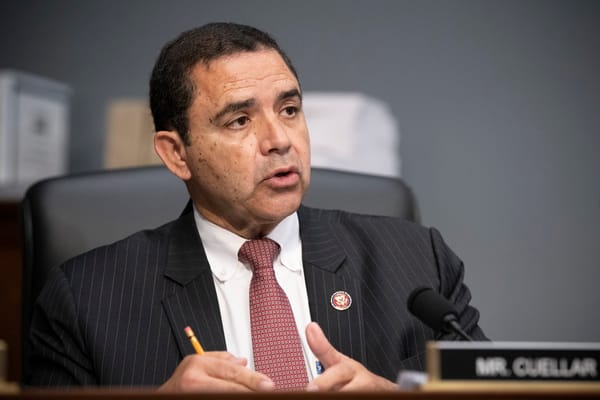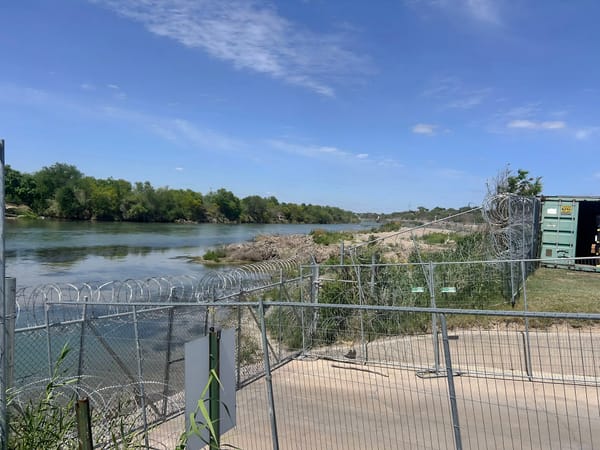‘A much-needed outlet’: More demonstrations planned in the Rio Grande Valley amid civil liberties crisis
People in the Rio Grande Valley continue to speak out as fear over civil liberties and deportations hits home.
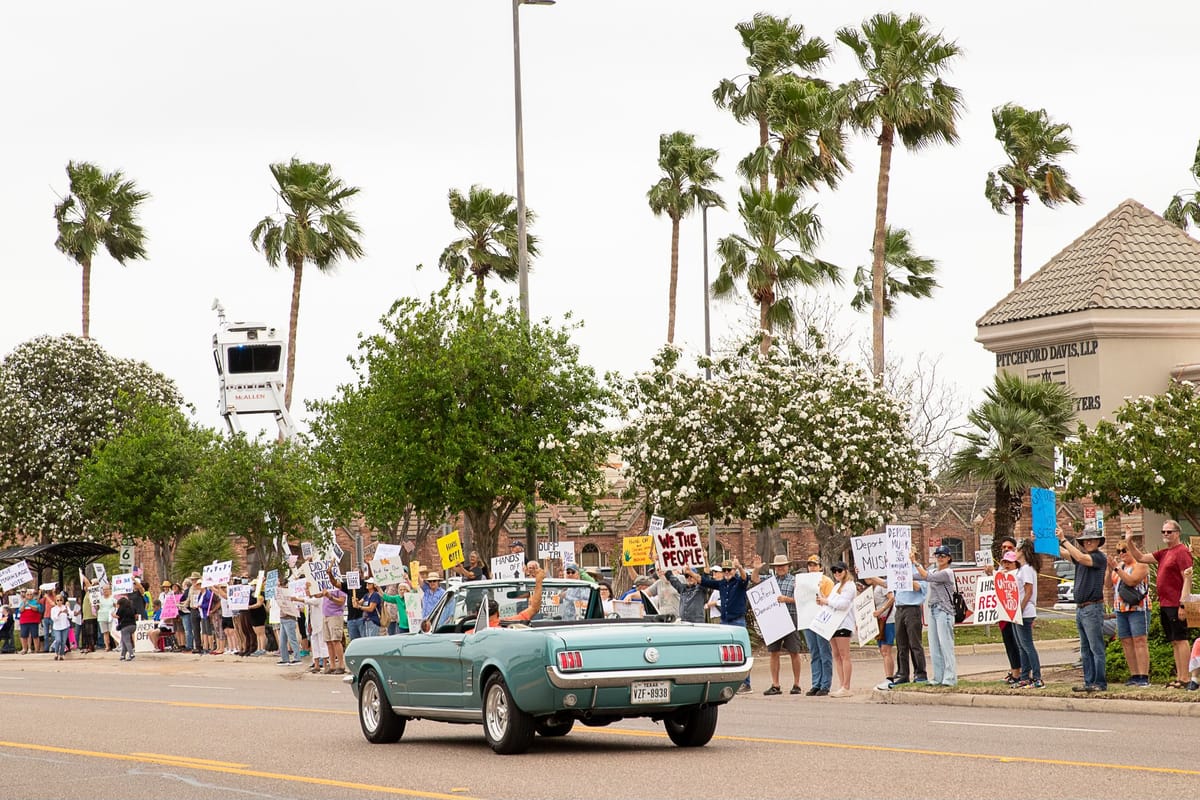
On Saturday, April 5, political demonstrations in the Rio Grande Valley broke out across the region. Hundreds of people showed up to each of the "Hands off!" protests in McAllen, Harlingen, Brownsville and South Padre Island, sparked by concerns of drastic cuts to Social Security benefits and other "working-class" federal services.
Those community gatherings were especially significant because they were, as one participant put it, "grassroots in the truest sense" — put together in the spur of the moment, as cities joined one by one to a national call for action just days before with little planning and no budget. Many of those who attended that day were joining a public demonstration for the first time or hadn't attended one in years.

Fabiola Escalon, who became involved in helping to plan one of the events with friends in her network, remembers the day well.
"It was super positive. People wanted to be there and wanted to just yell and chant and get things off their chest. We had zero issues," Escalon said. "The drivers passing by were all honking. There were children, and people were smiling. It was a much-needed outlet for people."
For many, that day marked a new feeling of cohesion in what participants described as a fast-paced, chaotic onslaught of constantly changing national priorities and shocking executive orders from the Trump administration.
True to that description, people in the community feel the Trump administration has given them reason to reconvene just two weeks later. They say a crisis over civil liberties is playing out in the Trump administration in a way that, much like possible cuts to Social Security benefits, is hitting close to home.
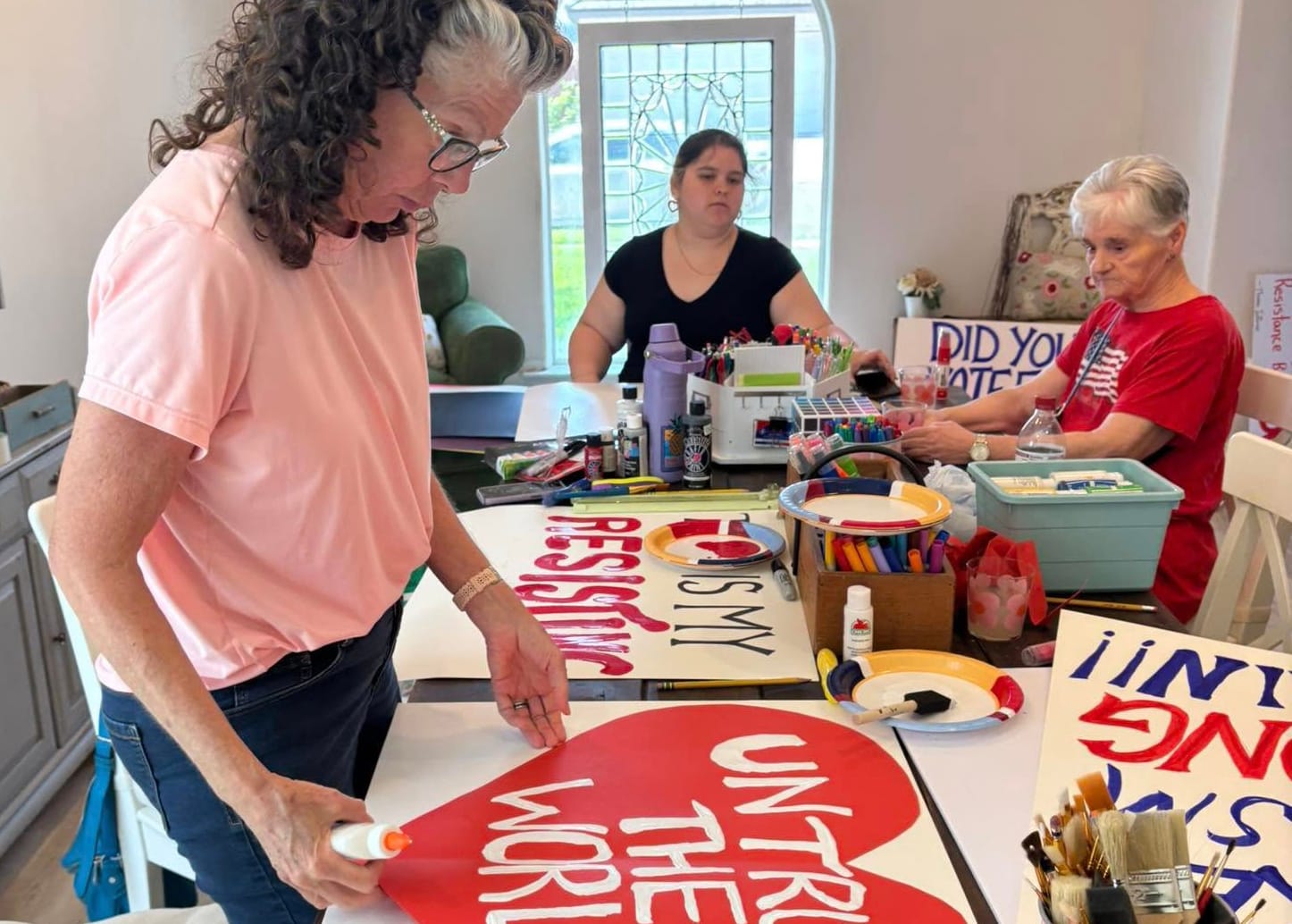
Since the last major demonstration, there have been several high-profile cases of people — arrested, held or deported by U.S. Immigration and Customs Enforcement — who were either citizens or had authorization to be in the United States, all with no criminal records.
Kilmar Abrego Garcia, a Maryland resident, was reportedly wrongfully deported to El Salvador despite a U.S. Supreme Court order prohibiting his removal. The Trump administration has so far not complied with a unanimous 9-0 ruling by the Supreme Court to facilitate his return.
In an opinion issued Thursday, Judge J. Harvie Wilkinson III — a conservative appointed by President Ronald Reagan — warned of the constitutional danger in the Trump administration’s actions, writing, “If today the executive claims the right to deport without due process and in disregard of court orders, what assurance will there be tomorrow that it will not deport American citizens and then disclaim responsibility to bring them home?”
"People are afraid of everything that is happening," Escalon said. "Just this incident with Abrego Garcia. The Supreme Court says 'you need to bring him back,' and Trump’s doing nothing. And then he said 'the homegrowns are next' and asked for more prison camps. There's no due process, so yeah, people are scared."
Trump further escalated tensions during a visit in the Oval Office this week with El Salvador President Nayib Bukele by suggesting that "homegrown" criminals could be sent to El Salvador's prisons, telling Bukele that the United States will need him to "build about five more places" in reference to prison space.
The case has stirred anxiety in the region, as several international students at the University of Texas Rio Grande Valley received notices of termination of their legal status by the U.S. Department of Homeland Security (DHS) as part of a national sweep by the Trump administration to deport foreign students authorized to be in the country.
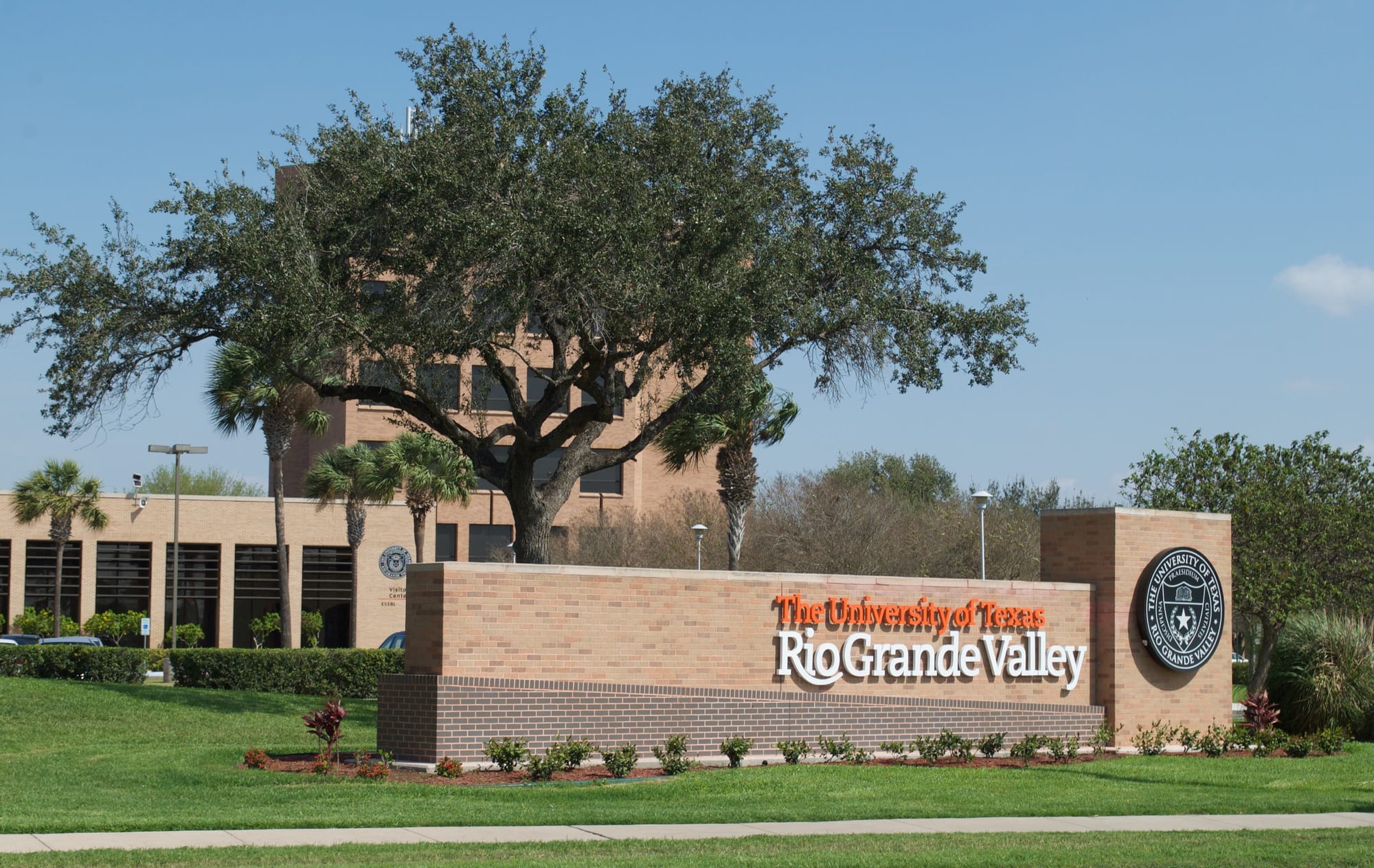
Dr. Gary Mounce, an Edinburg-based retired political science professor and local columnist, said he has worked with international students at UT Rio Grande Valley since 1974.
"They're very much a central part of campus life. They help the community," Mounce said. "They're here studying, living, paying taxes, and they're a boon to our culture and our economy. They even pay higher tuition."
Apart from the 700 international students from 62 countries that UT-RGV enrolls, the U.S. Census Bureau said in a 2024 population estimate that more than 1 in 4 people in Hidalgo County are foreign-born — twice the national average, with just over 1 in 5 in Cameron County.
Those figures mean that more than 350,000 people in both counties today are foreign-born, most with authorization to be in the country.
On top of those numbers, a 2019 analysis by the Migration Policy Institute found that of the 136,000 undocumented individuals — up to 99% of Mexican origin — living in Hidalgo and Cameron counties, about 15,000 of those age 24 and under in this group were enrolled in school or college that year.
“There’s a palpable sense of fear and concern. And there's a lack of focus, a lack of knowing what to do. People have reached out to me and told me not to write what I write,” said Mounce. “But I’m not underestimating the bravery of Rio Grande Valley people.”
Mounce recently penned a wide-ranging criticism of the Trump administration in a guest column for the Rio Grande Guardian, writing that the recent termination of legal status for students represented a “callous disregard, not only for people’s lives, but for the quality and nature of our economic and political system, the essence of the present and hope for the future.”
As Escalon worked on her speech for Saturday’s event, a protest titled “No Kings,” she explained on a call that many of those who attended the demonstration two weeks ago had never participated in anything like it before.
“In the Valley, people today are not used to this activism. It’s not easy, but we’re doing this for the people who can’t speak for themselves,” said Escalon. “But I like to say that there are people in the Valley alive now who still remember saving up all week to vote because we used to have a poll tax.”
Poll taxes, a fee individuals were required to pay in order to vote, were historically used to suppress low-income and minority voters. Texas continued using poll taxes in state elections until the Supreme Court ruled them unconstitutional in 1966.
“We had Dolores Huerta and Cesar Chavez,” Escalon said. “We had the civil rights movement that gave us our rights today. Being in the Valley, that is huge. We can’t forget.”
Escalon said a small group of people who helped coordinate the “Hands Off! Social Security” solidarity events have started calling themselves the South Texas Grassroots Coalition, with no official or registered entity.

“We’re still learning how all this is working, and it’s very loosely put together, honestly, but it’s gaining organization,” Escalon said. “The Democratic Party even asked us for a flier a few days ago. They said they wanted to promote the event.”
In Edinburg, Mounce said that despite anxiety in the community, he’s connected with many who’ve taken recent political events as a calling to civic life.
“Their idea is that no one is above the law,” said Mounce. “Trump is not king. Trump is not God. There are many ways to participate like reading the news and talking about it with other people. But the Valley right now is, like they say, ‘como agua para chocolate.’ I think you’d have to say that the Valley is not the silent Valley anymore.”
About Across The Americas
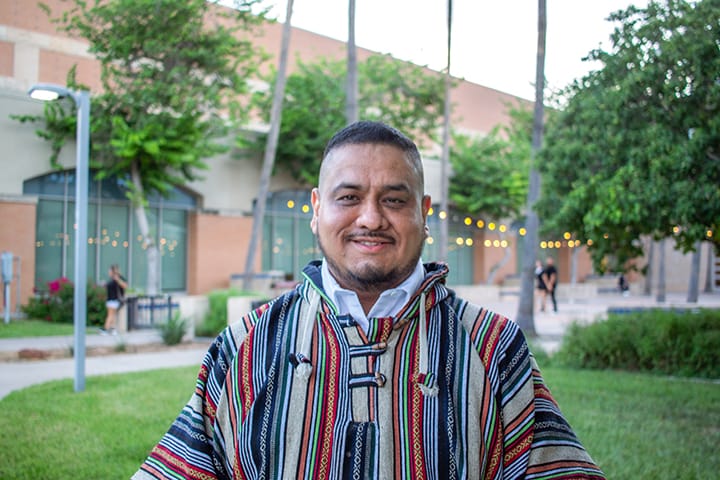
Across The Americas is the newsletter of insightful and independent journalism from the Rio Grande Valley.
Join three-time award-winning journalist Pablo De La Rosa as he reports from the Texas-Mexico border, where he was born and raised. He covers stories from the Rio Grande Valley and North Tamaulipas, focusing on the people and communities who call the region home.
Pablo's voice has appeared on NPR, MSNBC, Texas Public Radio, The Border Chronicle, and Lighthouse Reports documentaries. In 2022, Pablo helped launch and host Texas public media’s first daily Spanish-language newscast, broadcasting from the Rio Grande Valley for San Antonio’s NPR station.
Sign up to receive community stories from every corner of regional life — told through the lens of the national, binational and global forces shaping the borderlands.
Follow us on Facebook.



